Version 1 sucks, but ship it anyway.
I stared up at the bold words displayed on a large screen before an audience of hundreds. All of us were seated in our best suits, eager to hear the next speaker offer his wisdom.
This was 14 years ago when entrepreneurs from all walks of life would still gather to attend business conferences in person (not just via Zoom).
The presenter who stood several feet from us was giving an impassioned speech about the magic of constantly shipping products. “For one, you’re always learning,” he said, in a voice both confident and self-aware. “And you’re not caught up in getting things perfect.”
It felt like a momentous occasion. I was still in the process of building my startup and sought the insights of top leaders to understand the direction I wanted to take. I deeply wanted this message to resonate, but there was something off.
Now as I look back on that experience, I can say the speaker wasn’t completely wrong. Perfectionism is self-sabotaging and plagues even the best of us.
Fast forward to the present, and there’s still a lot of talk about the “Ship Or Die Mentality,” which glorifies growth for growth’s sake.
I get it, and can even sympathize. Leaders want to build a business that thrives. And in many people’s eyes, it’s heroic to deploy a new product and feel that forward sense of momentum.
But the part I can’t really endorse is the “suck” part.
It comes down to this: I’m not sold on the idea of shipping products that suck.
And history backs me up on this.
Take the Google Glass product launch back in 2014 that was hyped to revolutionize the way consumers experienced technology. Instead, it ended up as a spectacular failure.
Why? Because it neglected to provide real solutions for its users.
To put it simply: it sucked. Big time.
The trouble with the “just ship it” mindset
Quality isn’t always sexy. It’s slow-moving and forces you to take your time and listen closely. It means digging deeper into your customer’s evolving needs.
It means not settling for “good enough.”
At Jotform, we aren’t racing down a finish line, trying to push our product into the market before it’s ready.
While I get the temptation in “just shipping” a new product, here’s where I disagree:
You risk mediocre results.
Don’t get me wrong, I’m not advocating for “excellence at all costs.” Far from it.
But by staying focused on quality, I am building an enduring company.
I’ll be the first to admit that I don’t have such a great vision when it comes to coming up with novel ideas and rapidly getting them out to the market. I’m not the next Steve Jobs, And I’m OK with that.
What I do have, however, is the eagerness to listen closely.
Don’t just ship it: Why we worked on an idea for 3 years
Over more than a decade of running my company, we’ve processed over 700 million forms. And this number continues to compound as we are about to surpass 9 million Jotform users.
People want me to talk about how fast we ship and innovate. But our formula comes down to one thing:
Coming up with a vision, for us, doesn’t come from someone sitting in some isolated room and going “aha,” I need to ship this revolutionary product out NOW.
Our vision comes from understanding the data. From doing more than a thousand interviews, talking to people, and having all those users constantly hammering us with ideas.
From listening to the voices of our customers.
In my earlier years, it used to bother me that we weren’t shipping nearly as fast as the competition.
Yet, today, as we launch our newest product Jotform Tables — a tool that’s part spreadsheet, part database and allows anyoneto manage, track, and organize their data, all in one place — I’m reminded that it’s quality that truly makes a business successful.
We’ve spent the past 3 years ardently working on this project together as a team, and I realize how that, in itself, is a big statement about who we are.
I want to share 5 product lessons I learned while building Jotform Tables and a few other products that contributed to our compounding growth over the past 14 years.
1. Instead of fixating on expansion, build something truly useful
Compared to the competition, you won’t see us on the top of TechCrunch anytime soon.
Maybe we aren’t the fastest, but I will say this:
There aren’t a lot of companies who put their best people to work on a product for three years, and just dedicate those people to that product.
Releasing a perfectionist mindset is great — and I have major respect for those who advocate for it. But I also believe we should dispel the myth to “ship even if it sucks.”
In fact, I’m interested in the opposite.
Are we listening closely to people’s needs?
Are we learning from both our mistakes and insights gained?
My ultimate goal is in building something truly useful. Focus on quality rather than speed, and you’ll move the earth.
2. Stay disciplined.
While it’s easy to get excited during the brainstorming part of product-development, it’s equally important to slow down and harness all of that enthusiasm for the long-game.
For example, in those early days of coming up with our ideas for Tables, we realized that gathering our user’s data was just the first step. The real job was maintaining our momentum for however long it took to develop our product (in this case, a whopping 3 years!).
While our offices were electric with creative energy those first few months, it was clear we were quickly running out of steam.
I started to feel like we needed to come up with a way to stay focused. So, we eventually began using demo days to keep us motivated — these are weekly afternoons where designers, developers, and other teams can show their progress and remain focused.
As weeks stretched into months, these demo days gave us the discipline to stay the course, because we could show steady progress and not worry about the pressure to “ship.”
3. Be bold.
Instead of becoming paralyzed by the competition, use what you learn as innovative fuel for your own projects.
At first, with Tables, we were implementing everything within the features and limitations of a spreadsheet. Then we saw that competitors like Airtable were breaking free from the existing rules.
So we asked ourselves:
What if we, also, created our own rules?
What if we were bolder with our ideas?
We leaned into our interviews even more and decided that unlike spreadsheets, our product would also have columns where you are able to do many things like sort, filter, search and group data.
Of course, we didn’t stop innovating there.
If we’d simply released a version when we first had this idea, it would have been a disaster for our company, and potentially alienate our existing customers.
We needed more time to finesse our discoveries, to keep looking at our user feedback and see what other features they were asking for.
My point is, rather than become deflated by what competitors are up to, let it inspire you — and give you the courage to keep progressing.
4. Be patient.
Resisting that impulse to “ship” at the beginning is essential, because you understand just how much patience matters in creating a truly useful product.
Patience is what allowed us to listen to millions of users through their feedback.
And that’s where the spark of real innovation happened. We heard them say spreadsheets alone weren’t enough for their teams.
That’s how we began imagining a spreadsheet database hybrid that would also have powerful online forms.
Rather than chase trends, we wanted to design a product that actually made people’s lives easier. And I can say that we wouldn’t have reached this conclusion if we were blindly following the “ship it or die” mentality.
The bottom line:
Being patient meant caring about our customers and spending not just a few hours listening, but a few years.
5. Finally…have a vision that comes from outside of you.
It’s true that others might develop great products in a shorter amount of time, but I’m proud of what we’ve been able to achieve as a company.
Three years after beginning this project, here’s what we’ve learned:
Patience comes from vision.
When you know you are working on the right thing, you can be patient.
At Jotform, we don’t come up with side projects — we focus our work on things that matter. Because we know that people need those things.
And our data shows we’ve spent our time investing wisely.
During our testing, we’ve received feedback that Tables has been a great tool during this COVID-19 period, helping our customers share and retrieve data for programs and projects. People are also finding that it’s easy to use and saves them time.
Most importantly, if this pandemic has taught me anything, it’s this:
True vision = Putting your customer’s voice above your own.
And that’s worth a whole lot more than just “shipping it.”


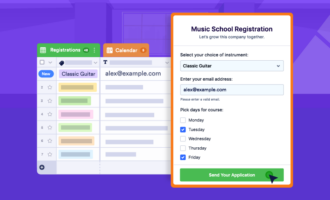
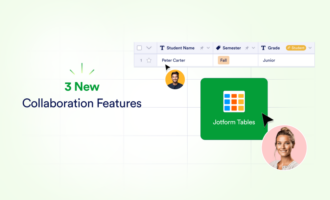
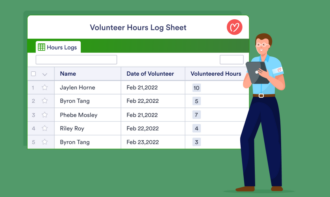








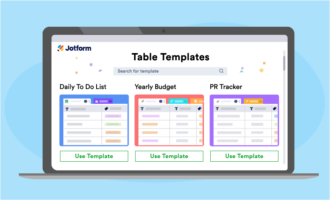

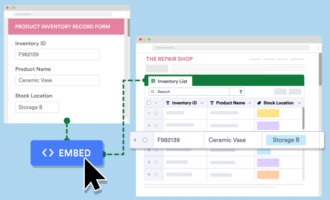

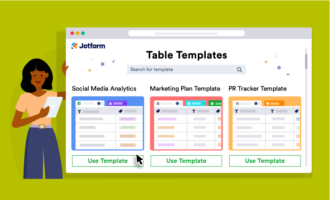



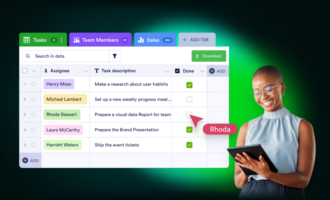

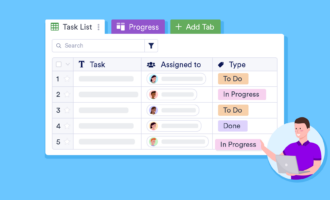

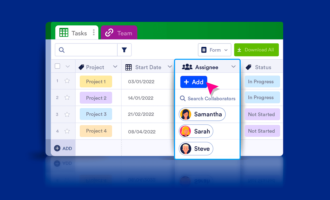

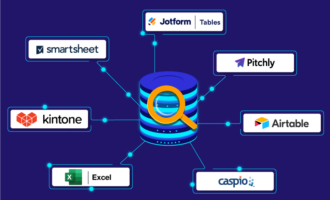






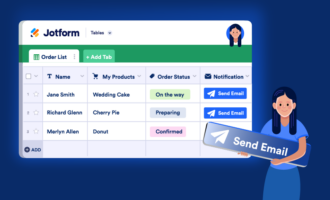





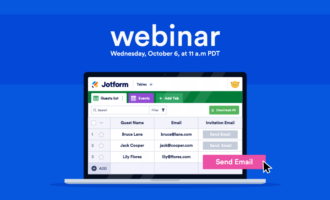


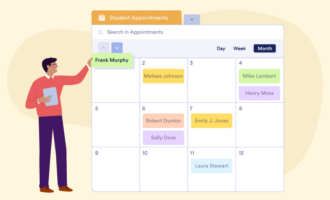



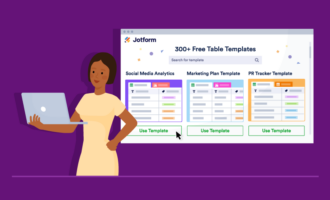

Send Comment:
1 Comment:
More than a year ago
I applaude. Special thanks for not naming the article "5 product lessons I learned while building Jotform Tables".